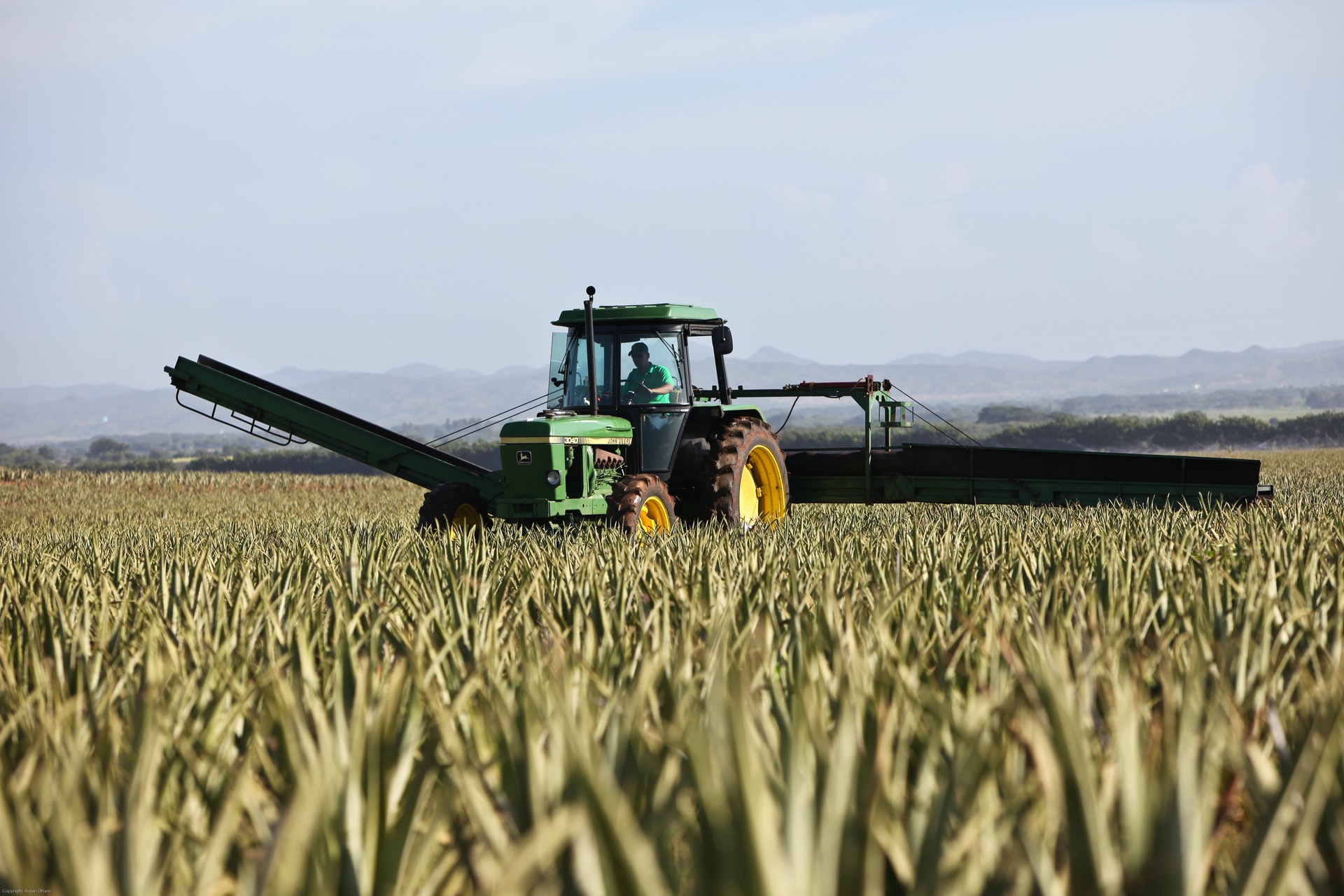Because farmers are in shock over fertilizer prices

Fertilizer prices were already high before the war, but have now reached record levels and this, says the UN International Fund for Agricultural Development, "will be a tragedy for the poorest people in the world." The Wall Street Journal article
In his nine years of selling fertilizer to corn and rice farmers in West Africa, Malick Niang says he has never seen such a severe supply crisis – or such high prices.
Since Russia invaded Ukraine, shipping companies have avoided docking in St. Petersburg, Russia, to pick up goods, Niang said. This, coupled with the impact of the West's financial sanctions against Moscow, means that fertilizer exports from Russia – the world's largest producer – have fallen sharply.
Niang contacted vendors located elsewhere, for example in Senegal and Morocco, but was told that their order books are full until the end of the year.
"Maybe we will find one or two options other than Russia, but it will be very expensive," he said.
Fertilizer prices were already high before the war. They have now reached record highs amid a precipitous decline in Russian supply, according to the CRU Group, which analyzes commodity markets. At the same time, the rising price of natural gas, another Russian export product and a crucial ingredient in fertilizer production, has led European fertilizer factories to cut production.
As a result, fertilizer is three to four times more expensive now than in 2020, with far-reaching consequences for farmers' incomes, agricultural yields and food prices, writes the WSJ .
In the province of East Java, Indonesia, maize farmer Nurhadi, who goes by one name, bought half of his usual stock of fertilizer, relying instead on animal dung, which is not as effective and will result in , he said, substantially reduced yield. In Colombia, which depends on Russia for a fifth of its fertilizer imports, potato farmer Ana Elvira Sanabria has switched to raising cattle and growing a local fruit called uchuva, which needs less fertilizer. "Last year, at this time, most of us had the land ready to plant," he said. "This year most of it is uncultivated."
Farmers' struggles started before the war. Rising energy costs last year pushed up fertilizer prices, as did new restrictions and export licensing requirements for China, Turkey, Egypt and Russia.
Poor harvests will hit developing countries hardest, forcing their governments to import large quantities of commodities like wheat at high prices, agriculture experts say. Global food prices in February hit their highest point since the United Nations Food and Agriculture Organization (FAO) began collecting monthly data three decades ago.
Food insecurity is set to worsen. The Global Network Against Food Crises, an alliance of humanitarian and development groups, estimates that in September, 161 million people in 42 nations in 2021 faced acute malnutrition or were forced to sell goods or take other desperate measures. to get food, with a 19% increase since the beginning of the year.
"I am deeply concerned that the violent conflict in Ukraine, already a catastrophe for the people directly affected, will also be a tragedy for the poorest people in the world who live in rural areas and who cannot absorb the price increases of basic food and of agricultural inputs that will result from disruptions to global trade, ”said Gilbert Houngbo, president of the United Nations International Fund for Agricultural Development.
The disruption of the grain supply from Ukraine could have been a boon to some of the world's largest food exporters, including Argentina, and to farmers like Gabriel Pellizzon, who grows wheat, maize and soybeans on some 3,700 acres in the country. central province of Córdoba in Argentina, and instead said it will likely cut production by around 30%. Omar Bachetta, a farmer in the province of Santa Fe, has already cut down on fertilizers. Urea now costs $ 1,400 per ton, up from $ 800 last year and $ 500 a year earlier, Bachetta said.
Fertilizer producers are experiencing a continuing shortage. After the invasion of Russia sent European natural gas prices to record highs, many companies reduced production of ammonium, which is used to make nitrogen fertilizers. Although European natural gas futures prices have fallen since the beginning of March, they remain around 40% higher than they were before the invasion of Ukraine.
Borealis AG, a large European fertilizer producer, said this month it is operating its reduced-capacity ammonium plants. Nitrogénművek Zrt, a Hungarian producer, is temporarily halting ammonium production and Norway's Yara International, one of the largest fertilizer producers in the world, said in early March it would limit production at plants in France and Italy, leading its European production of ammonium and urea at around 45% of capacity.
"Our concern for next season is that nations that are already in a vulnerable position will face worsening conditions, particularly if they are dependent on net imports of both food and fertilizer," said Yara spokeswoman Kristin. Nordal.
Even if natural gas becomes cheaper, restarting ammonium plants is expensive, said Tony Will, chief executive and president of CF Industries Holdings Inc, a Deerfield-based nitrogen fertilizer manufacturer, which is keeping one of its UK plants closed. since September.
“We need to have a window of time that suggests we can trade for at least three or six months at a profit. Otherwise, it's really hard to get started with the boot process, ”Will said. “At the moment we don't see this possibility”.
(Extract from the foreign press review by eprcomunicazione )
This is a machine translation from Italian language of a post published on Start Magazine at the URL https://www.startmag.it/economia/gli-agricoltori-sono-sotto-choc-per-i-prezzi-dei-fertilizzanti/ on Mon, 28 Mar 2022 05:15:11 +0000.
